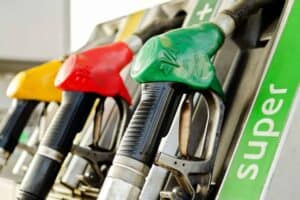Hike in fuel price comes on the back of a considerable decrease at the beginning of the year.

After January’s significant decrease in the price of fuel, motorists should brace themselves for increases across the board in February.
From down to up
According to the latest mid-month data report by the Central Energy Fund, the price of 93 unleaded petrol will rise by 42 cents a litre, 95 unleaded by 36 cents a litre and diesel by between five and 17 cents a litre.
Illuminating paraffin is set to increase by 20 cents a litre.
Reportedly as a result of stronger international oil prices, the price hikes have also been attributed to the rand weaking against the US dollar for the period under review.
Based on current data, the rand, by mid-afternoon on Tuesday (24 January), was hovering around the R17.27 mark against the greenback with Brent Crude Oil trading at $88.24 a barrel.
The various increases, once applied, will see the inland price of petrol breach the R22 a litre mark, with diesel set to remain below R23.50 a litre.
While exact confirmation of the final price is only expected before the end of the month by the Department of Energy, the latest prediction is unlikely to be welcomed by consumers after a tumultuous 2022 which saw prices reach record highs of R26 a litre.
ALSO READ: 27 cents a litre!? – These countries have fuel cheap enough to turn South Africans green with envy
Even with the expected increases, South Africa still ranks as one of the cheapest countries to fill up a fuel tank in for both petrol and diesel – placing ahead of Kenya, New Zealand, Portugal, Spain, the United Kingdom, Germany and France.
Currently, Hong Kong tops www.globalpetrolprices.com’s list of countries/territories with the most expensive petrol and diesel with respective prices, directly converted to rands, of R50.34 and R45.35.
Structural revision needed
Although still to comment on the latest fuel prediction, the Automobile Association (AA) in December said a review of the current petrol price structure still needs looking into.
“Going forward, though, we will continue to call for a re-evaluation of the fuel pricing structure to provide more longer lasting solutions to mitigate against rising fuel costs,” the AA said.
“A review of the fuel price must examine all the components that comprise a litre of fuel, establish their continued relevance as part of the fuel price, and determine if the calculations used are still correct.
“As we have said before, we believe such a review is long overdue and the longer government delays in getting this started, the longer it will take to find sustainable solutions,” it concluded.
Final announcement
The Department of Energy is still to implement the changes in the price of all grades of fuel on 8 February.
Support Local Journalism
Add The Citizen as a Preferred Source on Google and follow us on Google News to see more of our trusted reporting in Google News and Top Stories.








